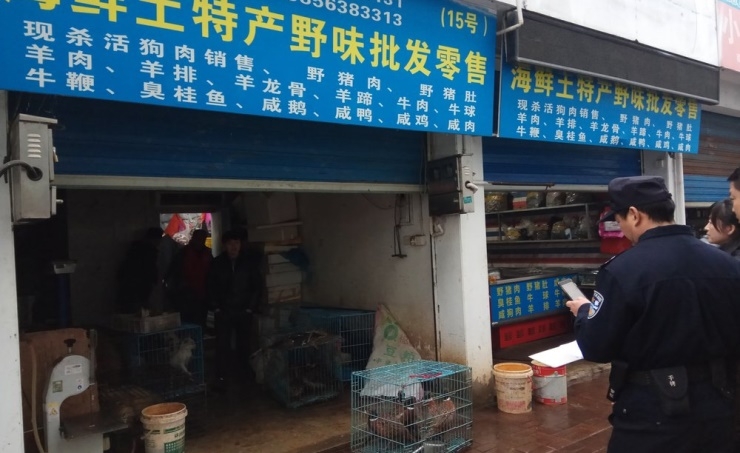China virus outbreak revives calls to stop wildlife trade
The outbreak of a new virus linked to a wildlife market in central China is prompting renewed calls for enforcement of laws against the trade in and consumption of exotic species.
It’s also raising questions about how it could happen again after the lessons learned from the 2002-2003 outbreak of SARS, or Severe Acute Respiratory Syndrome, which was traced to consumption of wild animals in the southern city of Guangzhou, The Associated Press (AP) reported.
Demand for wild animals in Asia, especially China, is hastening the extinction of many species, on top of posing a perennial health threat that authorities have failed to fully address despite growing risks of a global pandemic.
In response to the crisis that has been centered in the big industrial city of Wuhan, China’s Agriculture Ministry issued an order earlier this week ordering tightened controls on trade in wildlife.
The New York-based Wildlife Conservation Society, meanwhile, appealed for an end to wildlife markets everywhere, not just in China.
Zoonotic diseases, or those contracted by humans that originated in other species, account for a large share of human infectious illnesses.
Not all of them come from the wildlife trade: rabies is endemic across many species and one of the biggest causes of death in the developing world. But mixing species of wild animals increases the risk of diseases mutating and growing more virulent as they spread in unregulated markets, experts say.
The emergence of such diseases is a “numbers game,” said Christian Walzer, executive director of the Wildlife Conservation Society’s health program.
“If these markets persist, and human consumption of illegal and unregulated wildlife persists, then the public will continue to face heightened risks from emerging new viruses, potentially more lethal and the source of future pandemic spread,” he said. “These are perfect laboratories for creating opportunities for these viruses to emerge.”
The order issued by the Ministry of Agriculture and Rural Affairs, dated January 21, banned all shipments of wild animals out of Wuhan. It also called for stepped up inspections and for raising public awareness about the risks of eating them.
Researchers have not yet announced a definitive source for this latest outbreak, which like many other viruses can infect multiple species.
One of the first measures taken by Wuhan authorities was to close down the Huanan Seafood Wholesale Market, where 41 of the first cases originated.
Related Posts

